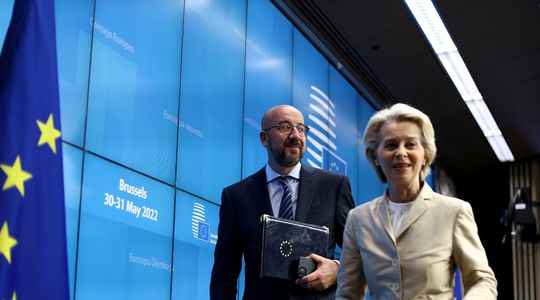Will the Europeans succeed in passing the test? Once again, their unity is put to the test by the dizzying rise in gas and electricity prices. From Tallinn to Madrid, via Paris or Berlin, it is the political urgency of the start of the school year, while the amount of bills is panicking families and businesses. At the end of July, European energy ministers were the last to meet in Brussels. This Friday, September 9, they meet there first.
After their health colleagues at the time of covid, it is their turn to find themselves on the front line. Public expectations are high: will the 27 succeed in finding the martingale to bring down prices, while Vladimir Putin has made gas a weapon of war? “Citizens are begging us to act now, confides, to the Express, Roberta Metsola, the conservative president of the European Parliament. We must prove that we are capable of taking decisions which allow them to make ends meet”. “The bills have already doubled once, we can’t let them double a second time”, worried the Belgian Prime Minister.
“The sense of urgency is shared by all”, reassures a European diplomat. The specter of a social crisis, and even of a serious economic recession, haunts people’s minds. As of August, the capitals had already spent more than 236 billion euros on various and uncoordinated measures to combat energy inflation, according to calculations by the Bruegel economic think tank. “All that is money that is not invested in energy or digital transitions, regrets someone close to the case. Rather than paying people’s bills, we need to act on prices.”
“The political situation has changed radically”
But if the Europeans want to show that they have heard the suffering of consumers faced with exorbitant bills, they do not agree on the means to alleviate it. Proposals are coming from all over Europe, at the risk of giving an impression of cacophony. To frame the debate, the European Commission finally drew its own a little in advance on Wednesday 7 September. Brussels wants to cap the income of producers of renewable or nuclear energy, which cost less to produce. The Commission is also considering a cap on the price of Russian gas, which is not unanimous. Czechs and Slovaks still depend on Moscow for their supplies. A clip produced by Gazprom where an employee turns off the tap and plunges Europe into the cold gave them a taste of what awaits them. The Germans also believe that it is still too early, while Belgium already wants to extend the cap to all suppliers, including Norway or Qatar.
The Hungarians insist on the need for a unanimous decision, just to be able to influence the choices… Opportunistic, the Poles demand the suspension of the European carbon market, which would suit these large coal consumers. For their part, the Dutch do not want us to touch the operation of the electricity market, which links the price of electrons to that of gas, while the French, who are calling for this reform loud and clear, think their time has come. “The political situation has changed radically”, we want to believe in Paris.
This Friday, the 27 will nevertheless try to tune their violins without spreading their differences too much, so as not to play Moscow’s game. Next Tuesday, the European Commission will present its concrete and quantified proposals for legislation. And energy ministers are expected to return to Brussels before the end of the month.
